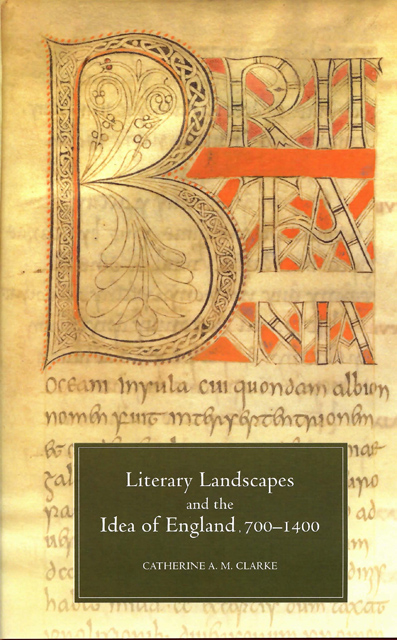Book contents
- Frontmatter
- Dedication
- Contents
- Acknowledgements
- Abbreviations
- Introduction
- Chapter One The Edenic Island
- Chapter Two Re-making the locus amoenus in Anglo-Saxon England
- Chapter Three Local Landscapes as Mirrors for England
- Chapter Four The Delightful City
- Epilogue: Disruptions and Continuities
- Bibliography
- Index
Chapter Three - Local Landscapes as Mirrors for England
Published online by Cambridge University Press: 28 February 2024
- Frontmatter
- Dedication
- Contents
- Acknowledgements
- Abbreviations
- Introduction
- Chapter One The Edenic Island
- Chapter Two Re-making the locus amoenus in Anglo-Saxon England
- Chapter Three Local Landscapes as Mirrors for England
- Chapter Four The Delightful City
- Epilogue: Disruptions and Continuities
- Bibliography
- Index
Summary
In the new political and cultural context of Anglo-Norman England, regional centres re-negotiate power systems and hierarchies and re-assert their claims to a place at the heart of notions of English identity, culture and power. This chapter will explore the ways in which the literature produced by regional monastic houses in the twelfth and thirteenth centuries represents local landscape as locus amoenus and mirror for the nation as a whole. Through these literary strategies, regional monastic houses claim a powerful role in the fashioning of national identity.
Thorlac Turville-Petre's study, England the Nation, offers an exploration of the relationships between regional communities and national constructs of power and identity in the late thirteenth and early fourteenth centuries. Turville-Petre acknowledges the challenges faced by areas situated away from London and the centres of Anglo-Norman power.
The region recognizes the dangers of its isolation. It takes pride in commemorating its own history, myths, and customs. Yet local affiliations and interests all have to be interpreted against the image that the nation has constructed of itself, because the region has a strong urge to identify with the nation that confers on it cultural significance, military and political power, a framework of legal rights, and international prestige.
Turville-Petre looks, for example, at the Middle English romance Havelok the Dane which seeks to remind an English audience of the past prestige and importance of Lincolnshire and Anglo-Danish relations, and which makes a claim for the reincorporation of the north-east region into notions of English history and national identity. He emphasises the ways in which ‘local communities expressed their regional distinctiveness but at the same time demanded to be included in the image the nation had constructed of itself’. The texts which will form the central focus of this chapter provide similar evidence of the complex political and cultural relationships between nation and region. However, they show more than simply regional resistance against exclusion from national constructions of identity, history and authority. Rather, the monastic texts explored in this chapter demonstrate the striking success of local communities in asserting a status emblematic of the nation as a whole and claiming an active role in the continuing production of national identity and image.
The central texts in this chapter are associated with monastic houses in the areas known today as the Somerset Levels and the East Anglian fenland. In particular, this chapter will focus on texts produced by or for the monasteries of Glastonbury, Ely and Ramsey.
- Type
- Chapter
- Information
- Literary Landscapes and the Idea of England, 700–1400 , pp. 67 - 89Publisher: Boydell & BrewerPrint publication year: 2006

